Uruguay’s long-term commitment to growth
- Finton Hanks
On 10 February, the Minister of Economy of Uruguay, Gabriel Oddone, joined Canning House to discuss the continued growth of the Uruguayan economy.
Briefing
Learn More News
On Wednesday, 16 July, Canning House hosted the President of Paraguay, H.E. Santiago Peña Palacios, for the Canning Lecture. The President spoke of Paraguay’s growing potential and the enduring UK-Paraguay relationship.
Before delivering the Canning Lecture, the President sat down with investors to discuss the opportunities in Paraguay. This productive conversation underlined the importance of ongoing British business involvement in the country.
Before the President took to the lectern, the CEO of Canning House, Jeremy Browne, introduced the lecture: President Peña joins an illustrious list of Latin American Presidents who have delivered the Canning Lecture since its inception in 1997. Previous iterations have included Daniel Noboa Azín, Michelle Bachelet, and Carlos Menem. However, this is the first time that a president of Paraguay has delivered the address, making this a historic event.
The United Kingdom’s Trade Envoy for Southern Cone, Fabian Hamilton MP, continued the introductions and reflected on his recent visit to Asunción. He celebrated the over 170 years of bilateral relations between the UK and Paraguay, and the recent £1 billion green investment into Paraguay. Mr. Hamilton identified an abundance of ambition in Paraguay and a mutual appetite for deeper relations. He was followed by Baroness Hooper, who continued this optimistic note, highlighting the clean energy edifice of Itaipu, the young population, and the highest GDP growth in Latin America. She welcomed President Peña to the stage.
H.E President Santiago Peña Palacios began his address by thanking Canning House for the invitation. Before expounding on the direction of Paraguay within his presidency, President Peña stressed the importance of understanding the history of Paraguay to date. He celebrated the indigenous inhabitants of pre-Colombian Paraguay and their role in establishing Asunción, the capital of Paraguay. He continued by highlighting key moments that have defined Paraguay’s history: the 1811 independence, the loss of the Triple Alliance War, and the military dictatorship. As a result of historical circumstances, he admitted, Paraguay did not end the 20th century as one of South America’s most developed and prosperous countries.
However, the President was full of optimism for his country. Since the establishment of democratic elections in 1993, Paraguay has stood as a bastion of stability in Latin America. President Peña stressed the importance of strong institutions, a stable currency, and low debt as important factors in the economy’s growing success. In particular, he highlighted the country's recent achievement of investment grade, which is sure to herald increased international investment. Paraguay, he insists, is moving in the right direction to meet its great potential.
The President was keen to share his progress on his two key policies that target childhood and housing. The former policy aims to improve the first 1000 days of every child’s life in Paraguay. As part of this focus on the youth, the government has been raising nutrition levels, which has caused increased school retention rates and reliance on public schools. Furthermore, his government has been encouraging students to study abroad to enrich their education. Paraguay has the youngest average population in Latin America, and the President wants to empower the youth.
His second policy focus is housing and improving the affordability of homes across the country. To do this, the President has created a housing financing facility that boosts financial inclusion, encourages savings, and serves the growing middle class of Paraguay. The speaker used this moment to call on the private sector to meet the needs of the people.
From here, the President moved on to where Paraguay is going next. He wants to leverage the stability of the country to continue to build on the strong foundations. He identified the energy transition and food production as key areas for growth in Paraguay.
Paraguay already boasts one of the cleanest energy markets in the world. Through its joint ownership of the Itaipu hydroelectric dam, among other sources, 100% of Paraguay’s energy comes from renewable sources. The President explained that there were ample opportunities for British firms to help further the sustainable development of Paraguay.
Paraguay’s great size and arable landmass allow it to export large quantities of food across the world. In addition, the large rivers running through the country facilitate international food exports, leading the President to repeat the famous remark of Augusto Roa Bastos: Paraguay is "an island surrounded by land."
The President closed by explaining how his government has been leading on sustainability. He recently introduced a law on credit carbon and the protection of the forests. Once again, he called for the participation of the private sector and British business in driving environmental protection in Paraguay.
Finally, the President told the audience that Paraguay is a rising star, and that the best was yet to come.
This event was organised with the support of the Embassy of Paraguay in the United Kingdom, and the Foreign, Commonwealth and Development Office.
A message from the Embassy of Paraguay in the United Kingdom
Paraguay, strategically located in the heart of South America, is determined to become a regional hub for sustainable, innovative, and long-term investments. The country possesses a favourable ecosystem in which investors can deploy entrepreneurial potential, seize opportunities in strategic sectors, and contribute to joint, inclusive, and sustainable growth. Paraguay distinguishes itself from the rest of the region through its macroeconomic and political stability, as well as a clear and consistent national development strategy.
With privileged access to a market of over 270 million people through Mercosur, Paraguay offers a competitive, low-risk environment for companies seeking to expand their presence in Latin America. Paraguay has one of the lowest income tax rates of 10%, a transparent legal framework, and openness to international trade and capital.
Paraguay produces 100% of its electricity from renewable sources, mainly hydropower, making it one of the cleanest and most competitive energy models in the world. This creates a favourable position for developing green industries such as green hydrogen, ammonia, electromobility, and low-carbon manufacturing.
The President, Santiago Peña, is in his second year and is continuing the implementation of a five-pillar governing plan: security and defence, economic growth, quality education, a healthy Paraguay, and a social Paraguay for all.
The government has been promoting a sustained growth agenda, prioritizing efficient public investment and strengthening strategic infrastructure. Employment and regional competition have been generated through the construction of roads, bridges, drinking water systems, sanitation, and urban infrastructure.
However, the greatest strength of Paraguay lies in its people. With a young population and increasing investments in technical, digital, and scientific education, Paraguay is developing the human capital required for 21st-century industries. This will allow the country to power advanced agribusiness, global services, technology, and innovation.
Paraguay has managed to keep its country risk rating and perspectives with major credit rating agencies: Moody’s, Fitch and Standard, and Poor’s. Paraguay is currently in an investment-grade position with Moody's and is just one notch below investment grade with Fitch Ratings and Standard & Poor's.
This milestone reflects a two-decade economic and institutional transformation that has consolidated macroeconomic stability and international confidence in the country. Paraguay has been an example of sustained growth and institutional reliance, with an economy that grew an average of 4% annually between 2003 and 2024, and a reduction in poverty from 58% to 20% over the last two decades.
The Government of Paraguay continues its work through its flagship social programs: "Semillas del Futuro" (early childhood), "Hambre Cero en las Escuelas" (school meals for more than one million children), "Becas Gobierno del Paraguay" (support for youth), "Che Róga Porã" (decent housing), and the Universal Pension for Older Adults.
As President Peña said, "Paraguay is already changing", with an irreversible transformation based on discipline, perseverance, and honest work, he is inviting all Paraguayans to feel proud of their nation.
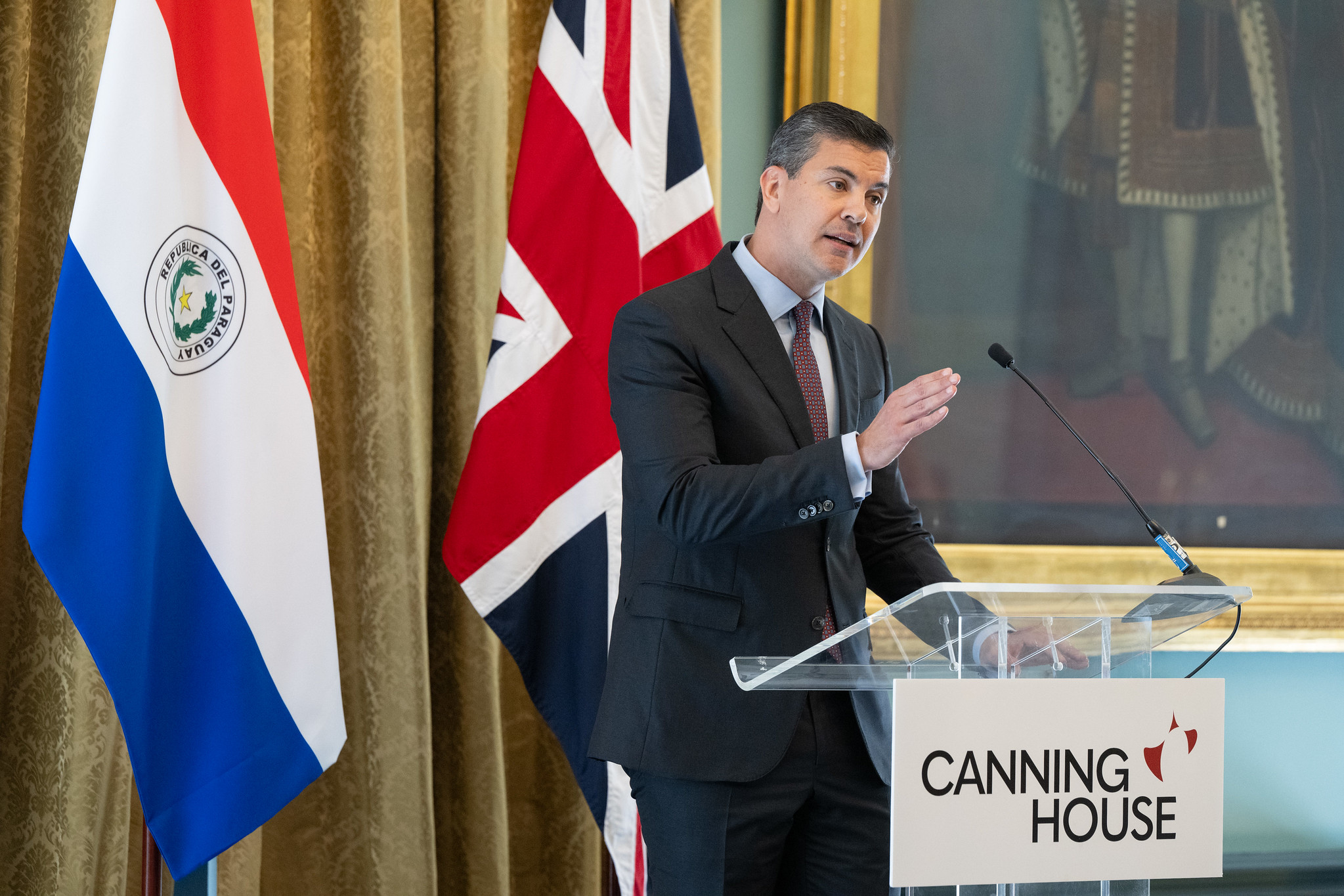
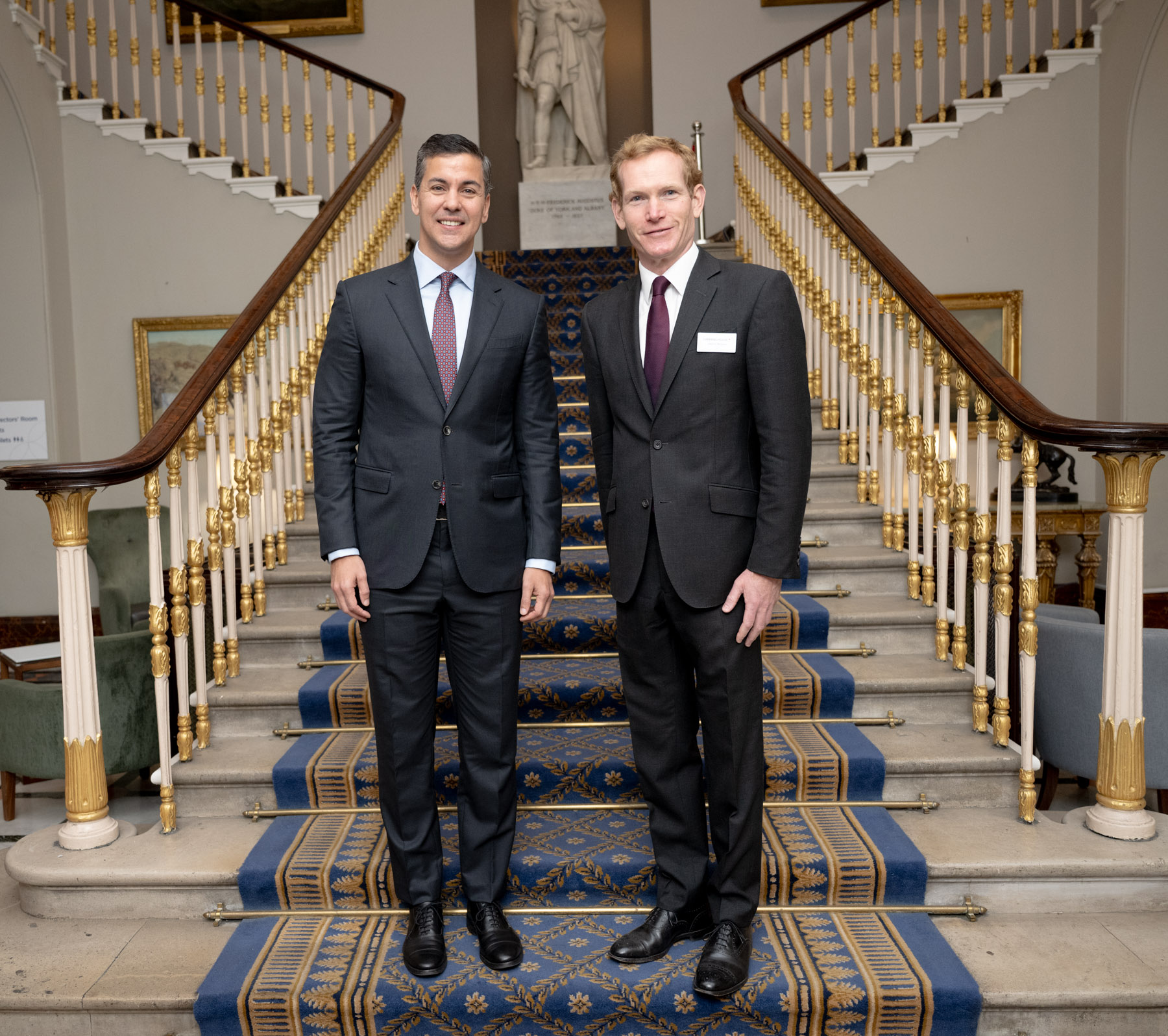
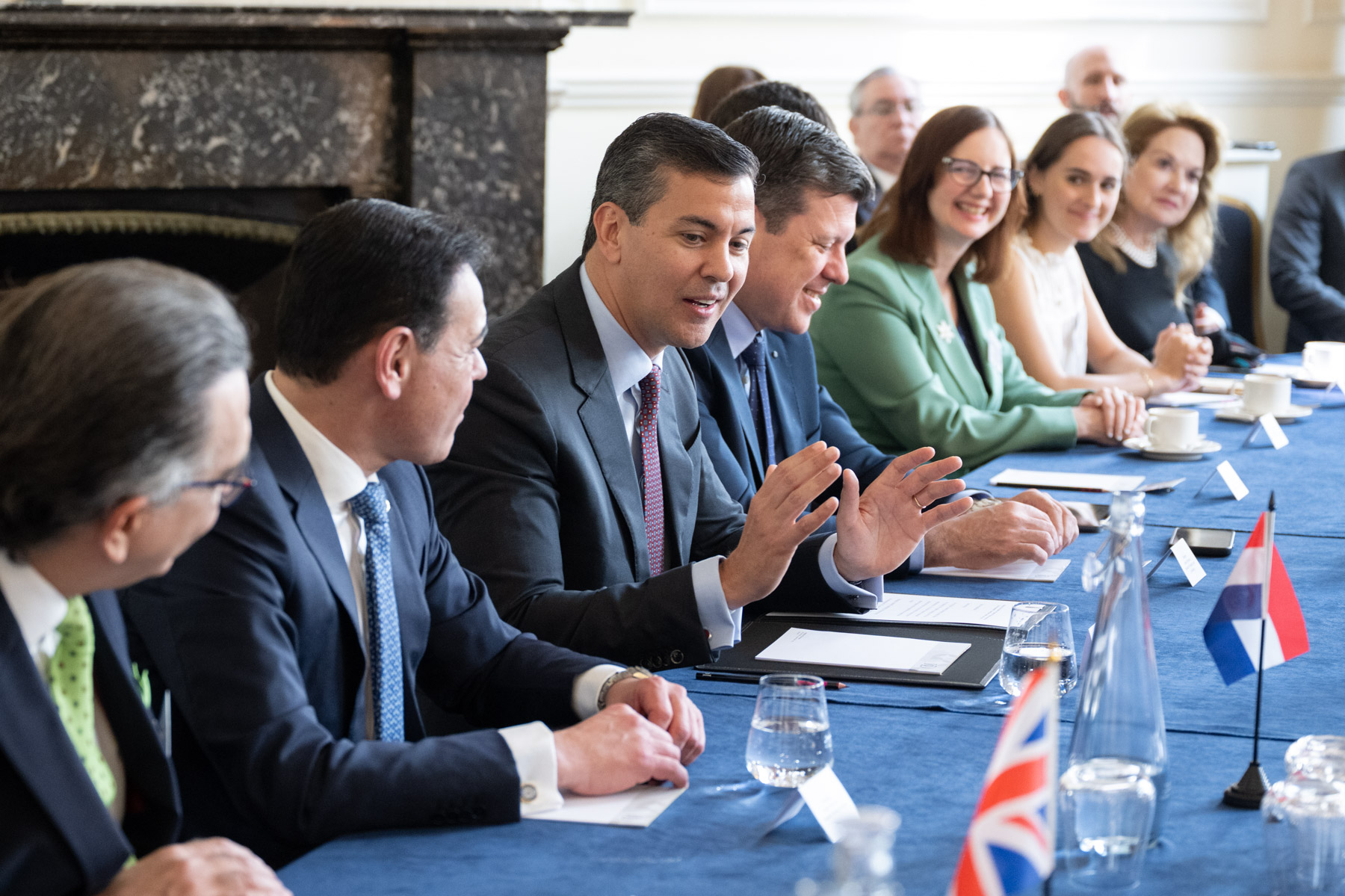
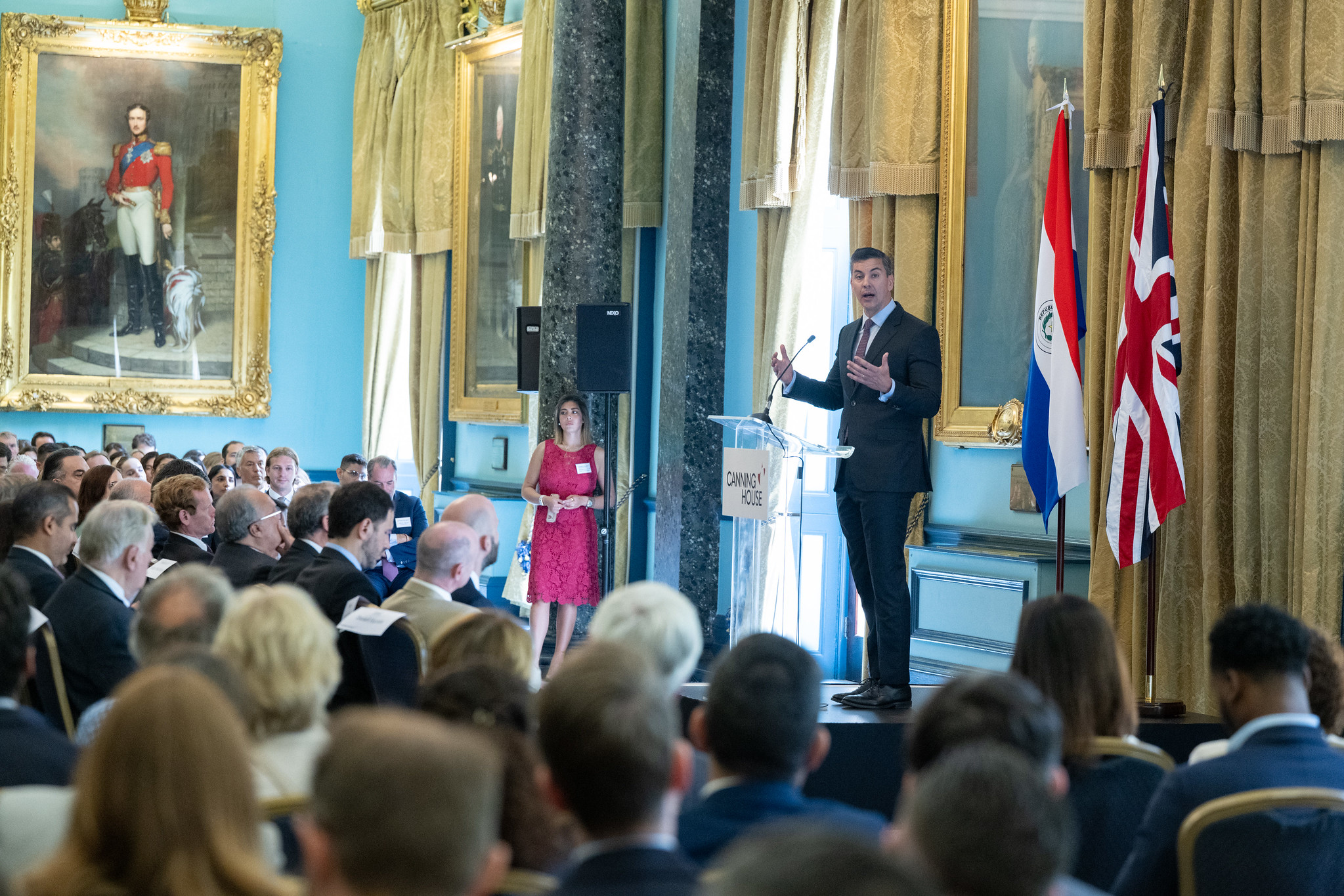
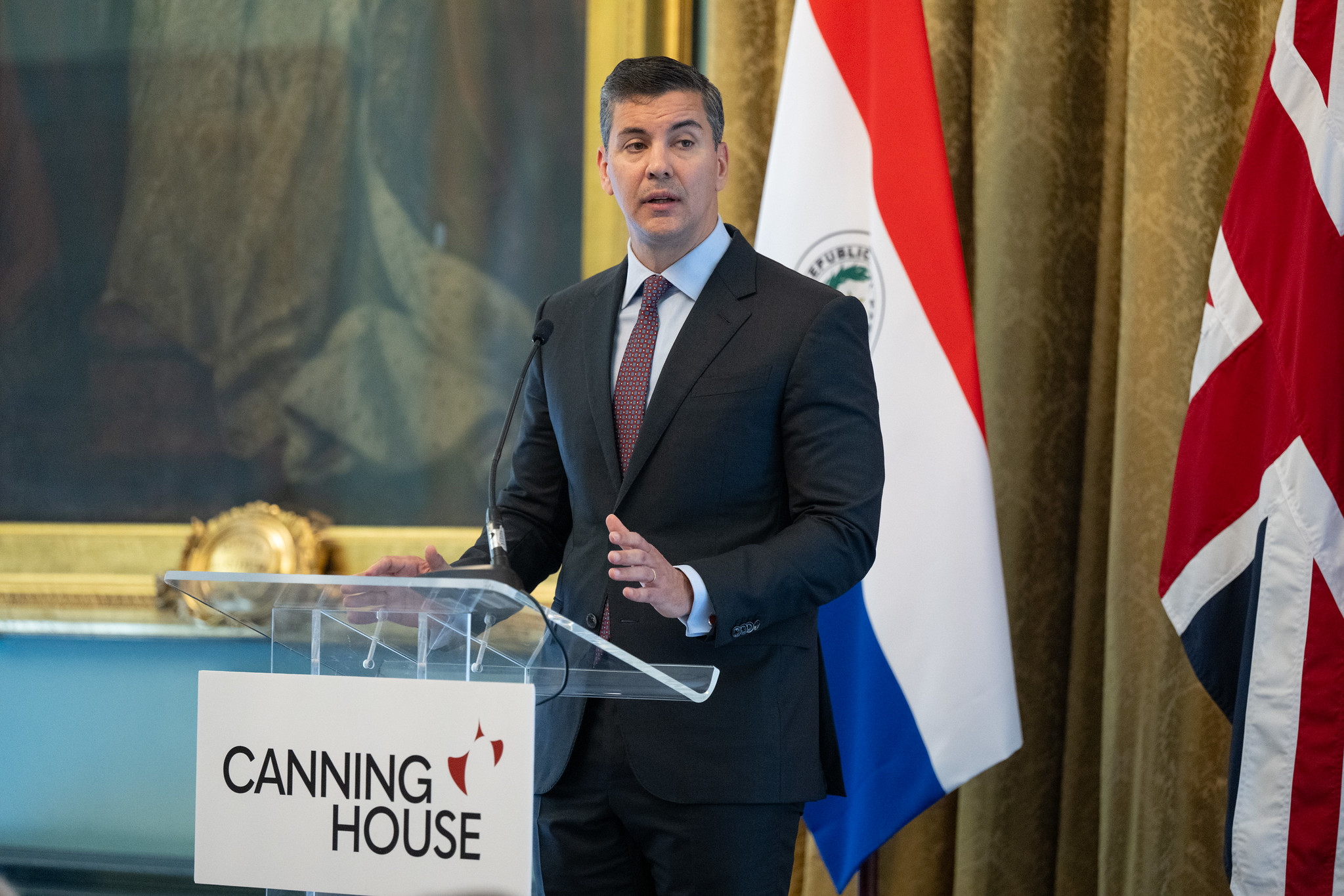
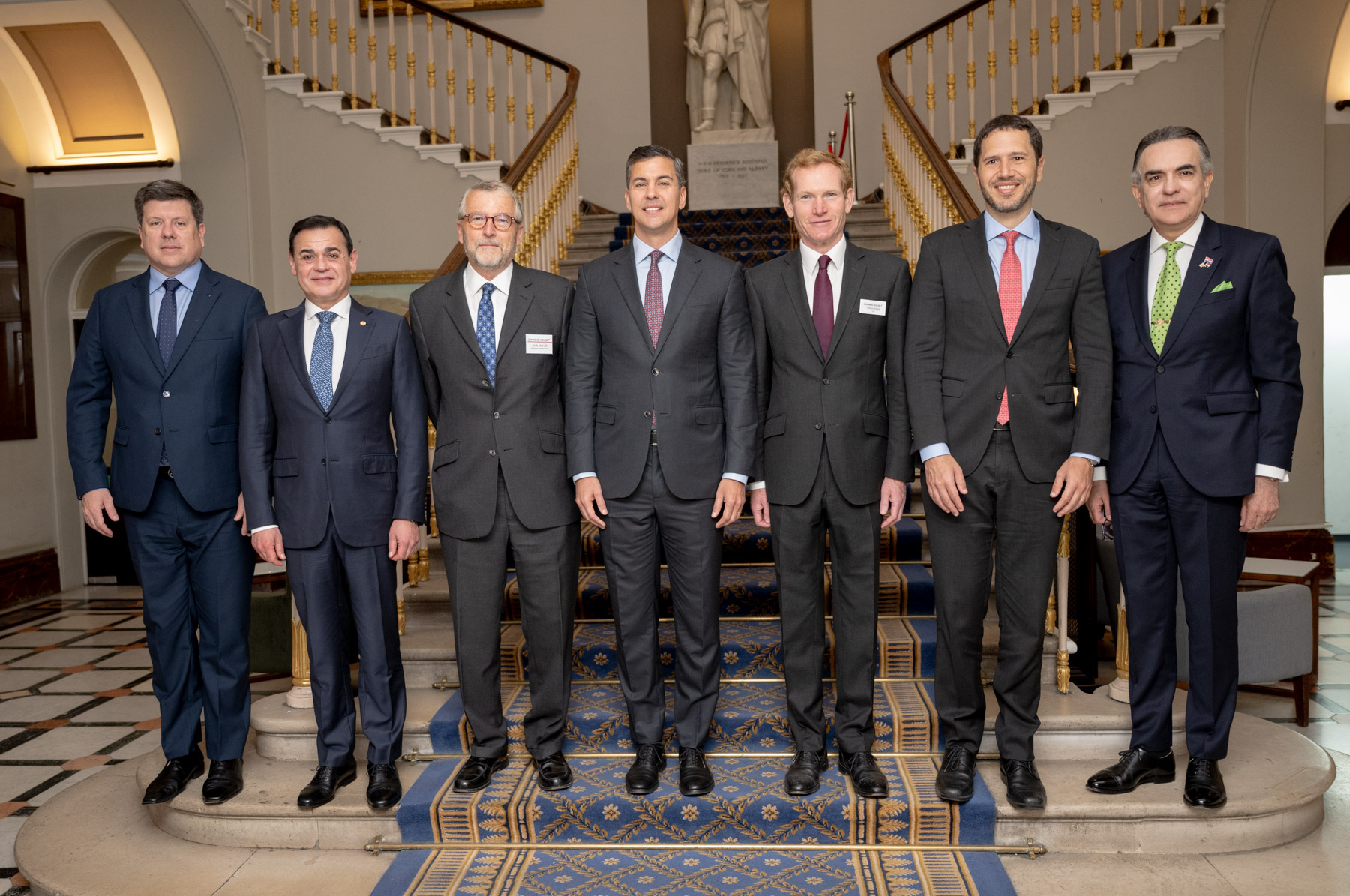
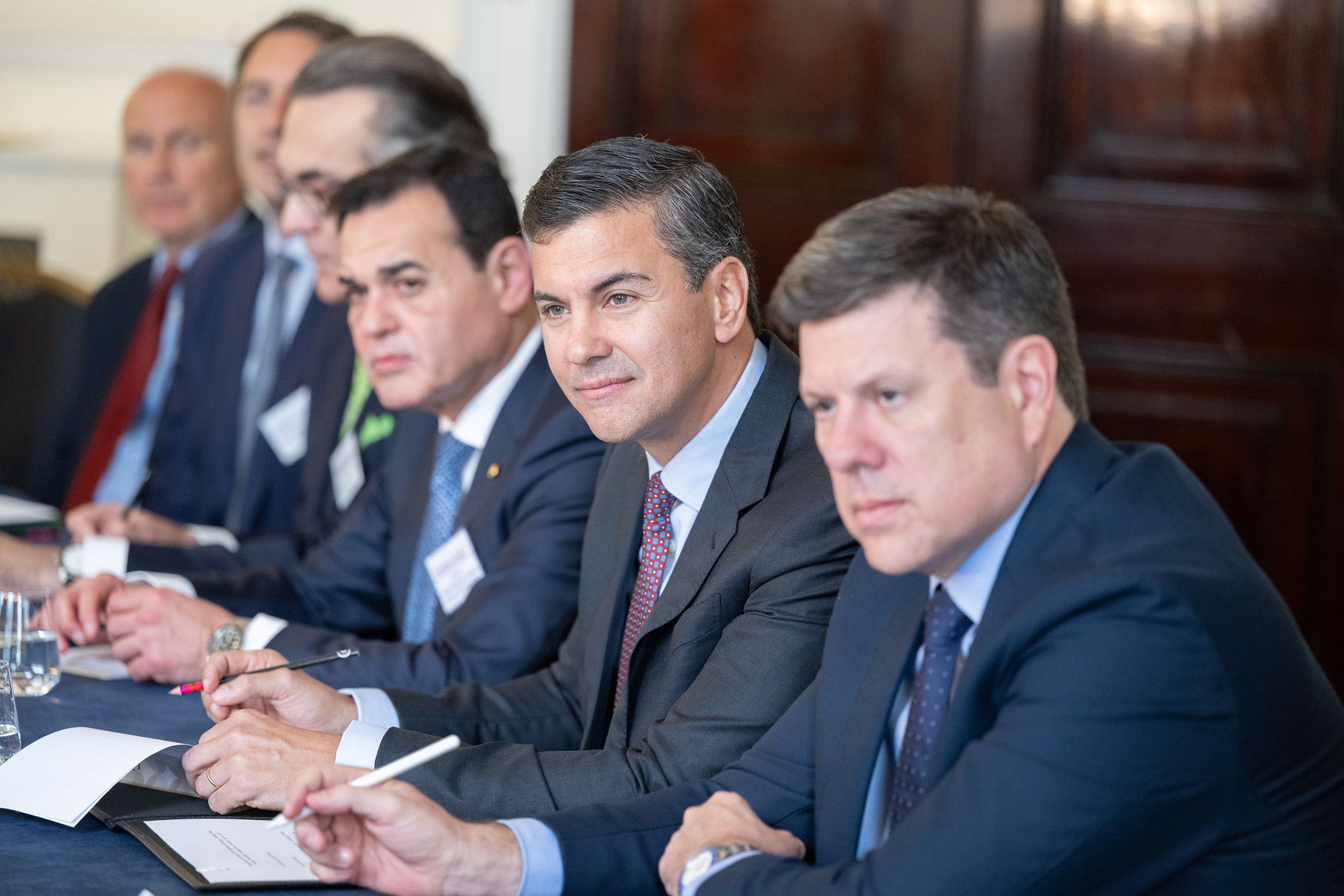
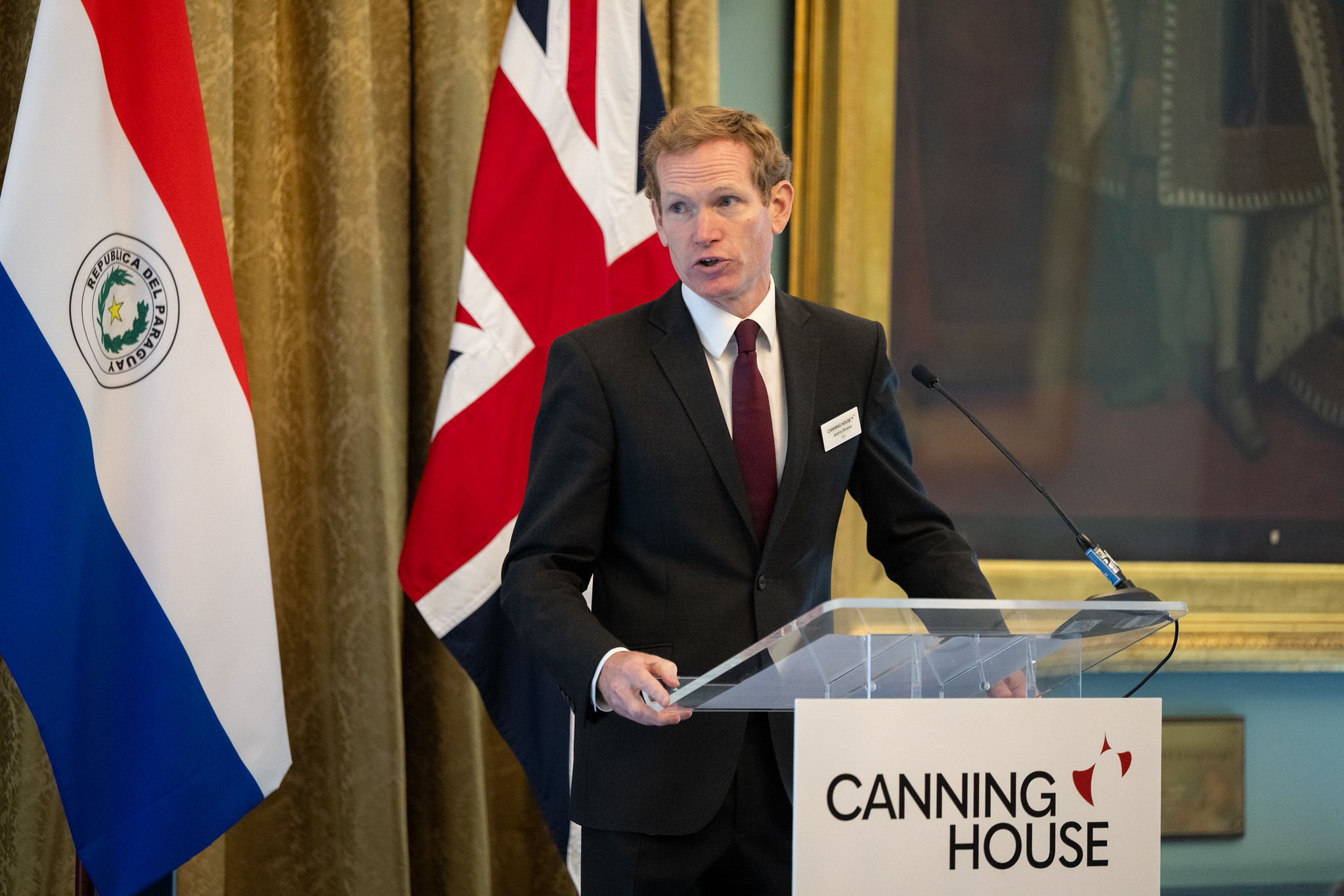
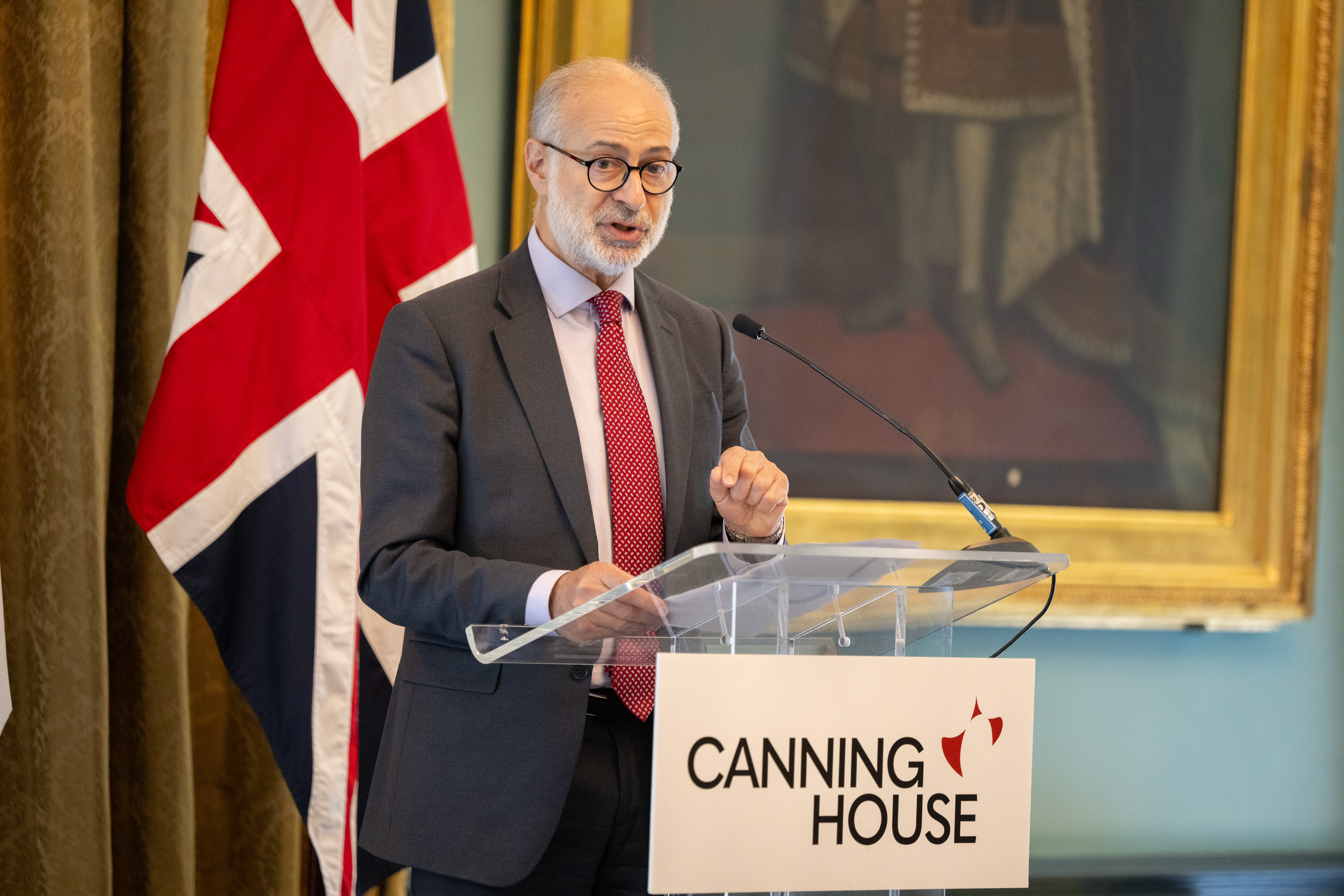
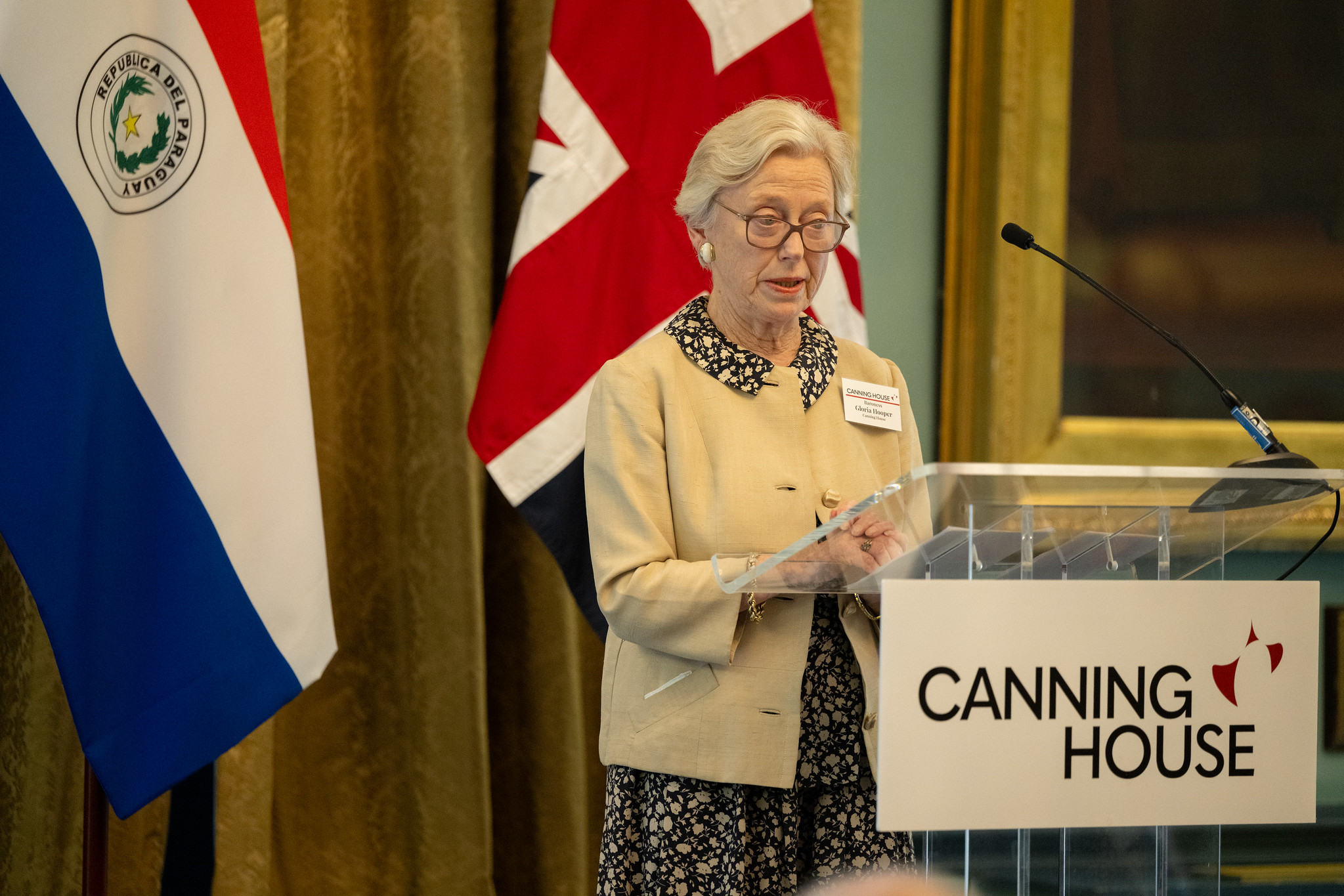
By joining Canning House, you will become part of the UK's leading forum for informed comment, contacts and debate on Latin American politics, economics and business.
Just £50 per year.
All of Canning House's activities, including our upcoming events, insightful publications, latest news, and featured events from the UK-Latin America community.
In your inbox, every week, for free.